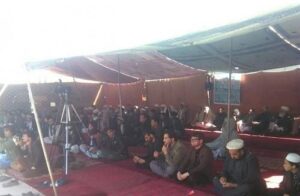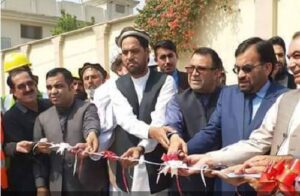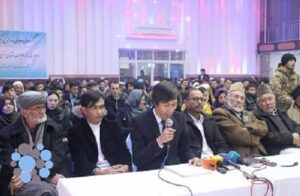
KABUL (SW): The Afghan authorities have made headway in their fight against corruption while enormous challenges remain, finds a new United Nations report released on Tuesday noted.
“For the sake of the country’s future, corruption in Afghanistan must be addressed and eliminated,” said Tadamichi Yamamoto, the UN Secretary-General’s Special Representative for Afghanistan. “The United Nations welcomes the progress already made, and fully supports the government’s ongoing efforts to fight corruption in the interest of ending impunity, ensuring accountability and transparency, and restoring integrity to the management of public services, finances and natural resources.”
In the report, titled ‘Afghanistan’s Fight Against Corruption: The Other Battlefield,’ the UN Assistance Mission in Afghanistan (UNAMA) highlights the progress the country has made in addressing corruption and draws on internationally recognized best practices to provide recommendations for how the government, with the continued support of the public and the international community, can build on those achievements.
“It is my sincere hope that the progress made so far in the fight against corruption and the recommendations contained in our report will serve as a platform to achieve greater policy coherence and coordination in Afghanistan,” said the UN envoy, who is also head of UNAMA.
The report, which was circulated to Afghan ministries and the judiciary for input and endorsement prior to release, points out that corruption has affected all aspects of life in Afghanistan, undermining public trust and confidence in government institutions, and hindering efforts to bring lasting peace and prosperity to the country.
A key component of Afghanistan’s fight against corruption is the dedicated Anti-Corruption Justice Centre (ACJC), with dedicated police and prosecution units, and a new national primary and appeals court, established by Presidential Decree to operate with jurisdiction over the broad range of corruption offences specified in the current penal code, as well as money laundering offences, destruction or selling of cultural and historical relics, crimes against internal and external security, illegal extraction of mines, and land usurpation.
In addition to outlining the advances made by the ACJC, which is actively investigating, prosecuting and adjudicating cases, the report indicates that Afghanistan is showing progress in restoring institutional control over the delivery of essential public services and management of public finances.
The report makes several recommendations, recognizing that the government’s ongoing anticorruption efforts have yet to impact the lives of most Afghans, and concludes that, notwithstanding the many legal and policy reforms that have been undertaken, corruption remains a substantial obstacle to Afghanistan’s long-term peace and prosperity.
“The report serves as a stark reminder that the fight against corruption cannot be won in the short term, and that the battle requires the sustained commitment on the part of the government and the general public, and full support from the international community,” said Yamamoto.
ENDS





